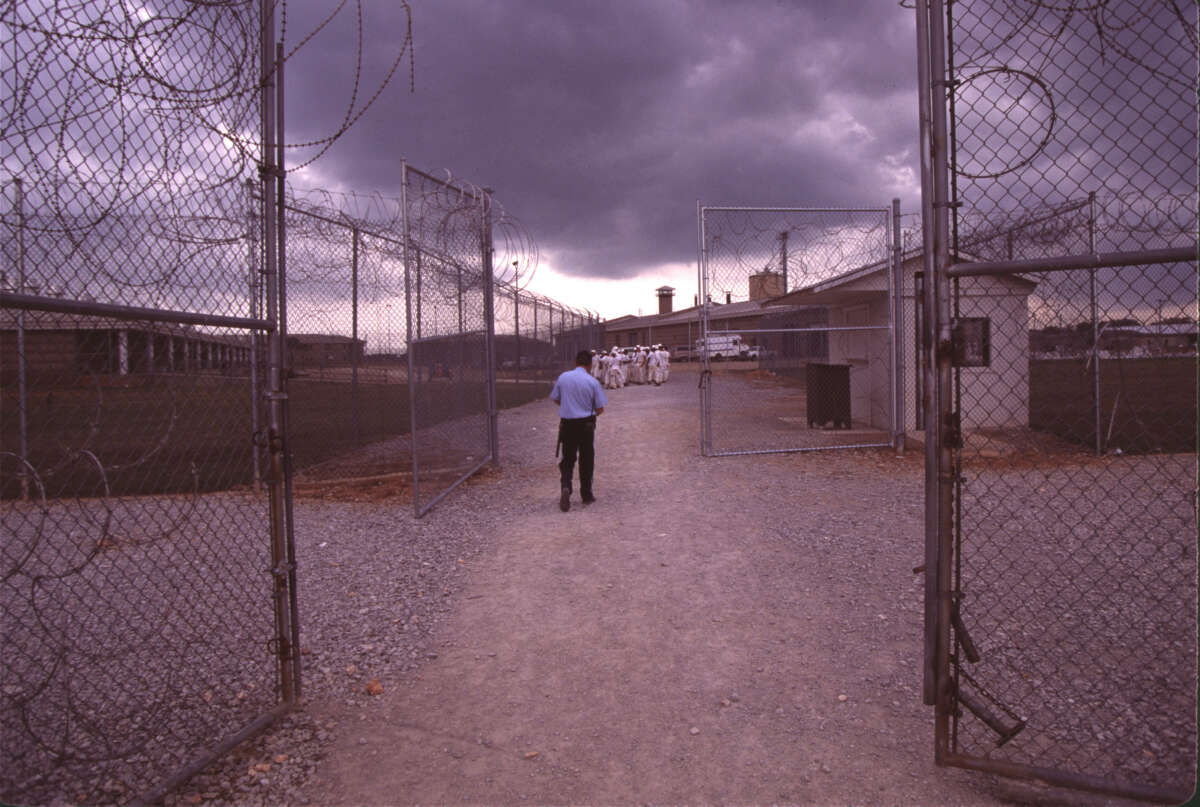Incarcerated Alabamans and labor organizations have filed a federal class action lawsuit to dismantle the forced prison labor system in the state, which rakes in $450 million annually from leasing incarcerated people to companies like McDonald’s, KFC, Burger King and Wendy’s.
The lawsuit, filed in the U.S. District Court for the Middle District of Alabama, seeks compensation for incarcerated people who have been exploited by the state’s forced prison labor system, which the lawsuit says is discriminatory. Despite a 2015 state law requiring that the Alabama Bureau of Pardons and Paroles make evidence-based parole decisions, the lawsuit alleges that the state denies Black Alabamians parole at a 2 to 1 rate compared to white candidates in order to maintain its pool of workers.
“[Incarcerated people] are trapped in this labor trafficking scheme,” says the lawsuit, which was obtained by The New York Times. “Although they are trusted to perform work for the state, local governments, and a vast array of private employers, some of the same people who profit from their coerced labor have systematically shut down grants of parole.”
One of the 10 plaintiffs, Alimireo English, was denied parole last month. He told The New York Times that he is on call 24-7 and that his labor is unpaid. “They deny us parole to keep us doing the jobs,” English said. “The mentality is: ‘Why would the slave master let the slave go when he can continue working him for free?’”
According to the lawsuit, the state’s forced prison labor system resurrects Alabama’s “convict leasing” program in which, from 1875 to 1928, Black laborers were forced to work for private companies who in turn paid state and county governments rather than the workers. Since 2018, 575 private companies and more than 100 public agencies in Alabama have partnered with the state to force incarcerated people to work as landscapers, janitors, drivers, metal fabricators and fast food workers.
The lawsuit demands that the court end Alabama’s forced prison labor system, order the reform of the state’s parole system, and compensate incarcerated people who have had their labor exploited by the state.
Alabama has one of the country’s highest rates of incarceration and “disproportionately harm[s], traumatize[s] and incarcerate[s] Black people,” according to the Alabama Appleseed Center for Law and Justice. Between January 1, 2021, and July 31, 2021, the Board of Pardons and Paroles denied parole for 90 percent of Black applicants, compared to 77 percent of parole-eligible white applicants.
One of the plaintiffs in the lawsuit, the Union of Southern Service Workers (USSW), has demanded that Gov. Kay Ivey (R) and Attorney General Steve Marshall end forced labor in the state. USSW has also called on corporations to hire the incarcerated people working at their companies once they are released from prison, pay back wages to all incarcerated laborers, allow workers to freely organize unions, and negotiate binding benefits agreements with local communities.
“We refuse to perpetuate this system of discrimination and injustice, ” the USSW said in a statement.
Join us in defending the truth before it’s too late
The future of independent journalism is uncertain, and the consequences of losing it are too grave to ignore. We have hours left to raise the $12,0000 still needed to ensure Truthout remains safe, strong, and free. Every dollar raised goes directly toward the costs of producing news you can trust.
Please give what you can — because by supporting us with a tax-deductible donation, you’re not just preserving a source of news, you’re helping to safeguard what’s left of our democracy.
